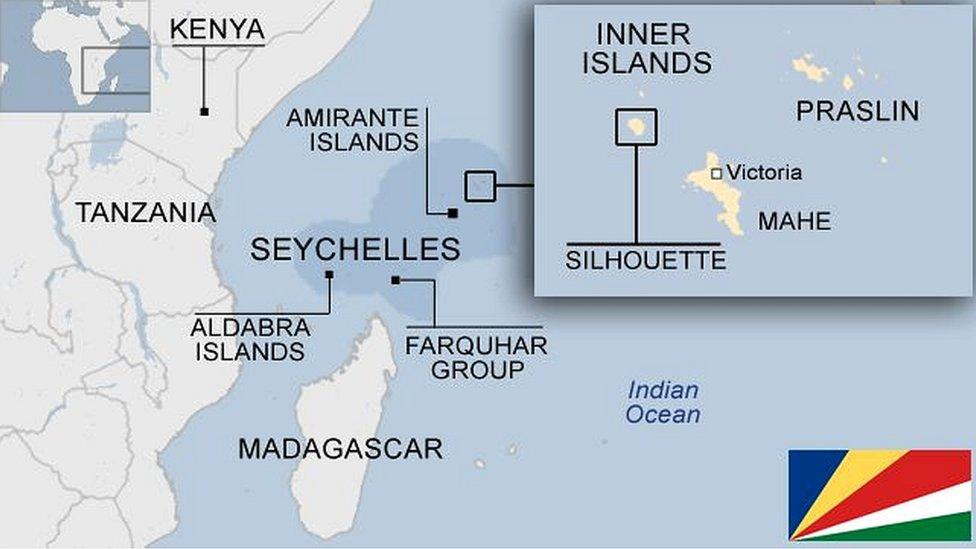Maldives country profile
- Published
This page is no longer being updated. It was last updated on 16 October 2023
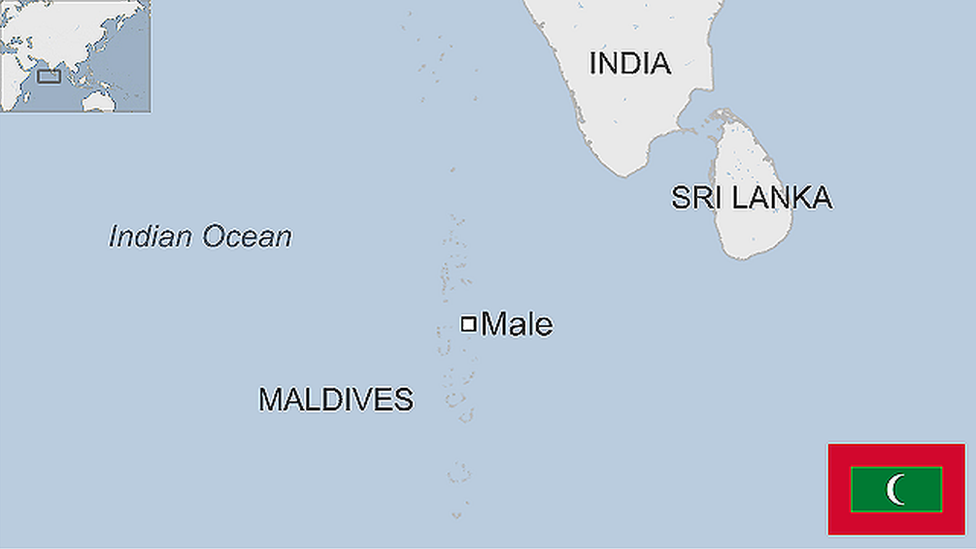
The Maldives is a republic lies south-west of the Indian sub-continent. It is made up of a chain of nearly 1,200 islands, most of them uninhabited.
None of the coral islands stand more than 1.8 metres (six feet) above sea level, making the country vulnerable to any rise in sea levels associated with global warming.
The economy revolves around tourism, and scores of islands have been developed for the top end of the tourist market.
Its political history has been unsettled since the electoral defeat of long-serving President Maumoon Abdul Gayoom in 2008.
Read more country profiles, external - Profiles by BBC Monitoring, external
REPUBLIC OF MALDIVES: FACTS
Capital: Male
Area: 300 sq km
Population: 392,000
Languages: Dhivehi, English
Life expectancy: 77 years (men) 81 years (women)
LEADER
President-elect: Mohamed Muizzu
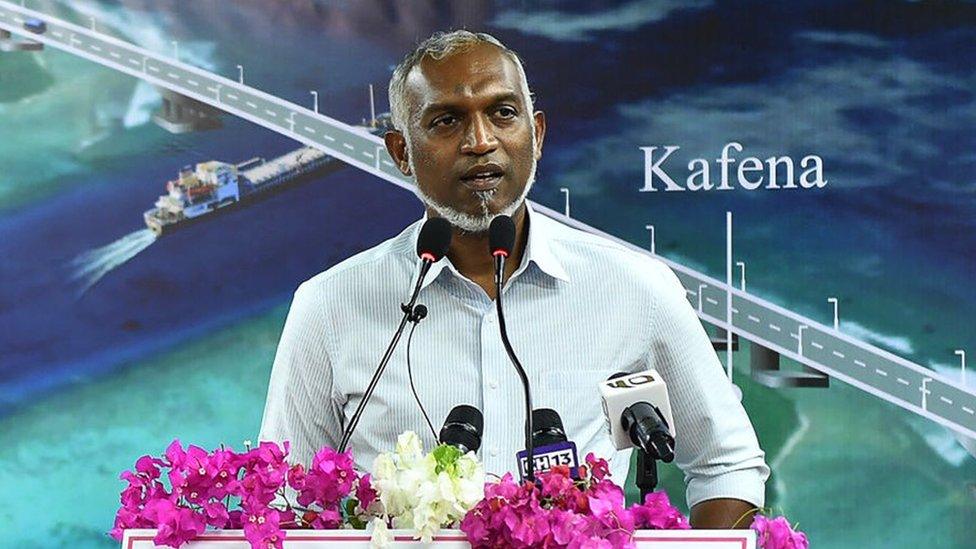
Mohamed Muizzu is the president-elect of the Maldives after he defeated the incumbent, Ibrahim Mohamed Solih, in the September 2023 presidential elections.
Muizzu, a candidate for the Progressive Party of Maldives (PPM), won over 54% of the votes in the second and the final run-off for the polls, which was viewed by many observers as a test for the country's connections with China and India.
The Maldives has long been under India's sphere of influence. Maintaining its presence there gives Delhi the ability to monitor a key part of the Indian Ocean.
Muizzu is seen as a supporter of China's interests in the country. Both India and China are trying to strengthen their presence in the strategically located islands which straddle busy east-west shipping lanes.
China, with its rapidly expanding naval forces, would want access to such a strategically important location - something India wants to prevent. Beijing is also keen to protect its energy supplies from the Gulf which pass through that route.
Both Delhi and Beijing have given the Maldives hundreds of millions of dollars in the form of loans and grants for infrastructure and development projects.
President Solih had taken the Maldives back into the Commonwealth, and his party won a landslide victory in parliamentary elections in 2019.
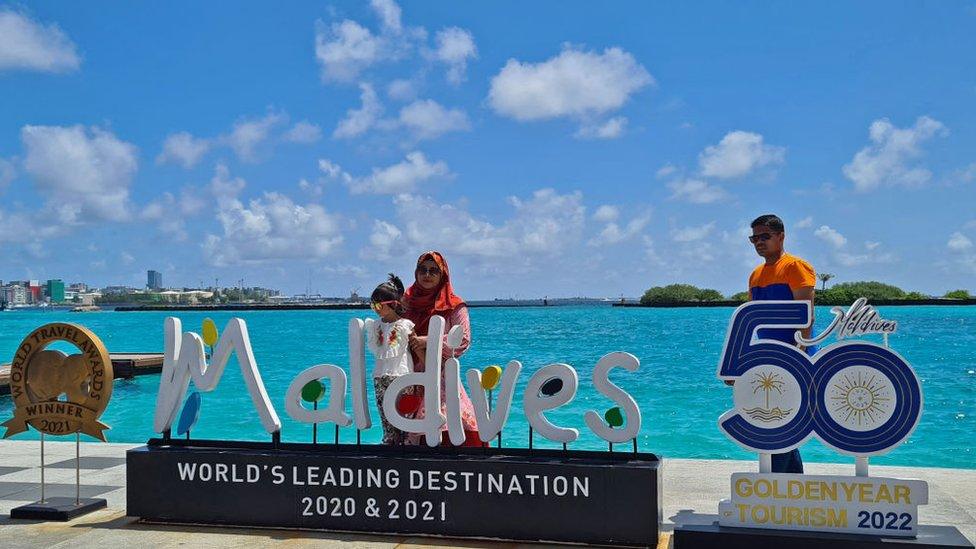
MEDIA
Non-state media report coming under pressure, and Reporters Without Borders says journalists operate in a climate of violence and impunity.
A 2016 law criminalised defamation, allowing the authorities to punish media for content deemed defamatory.
TIMELINE
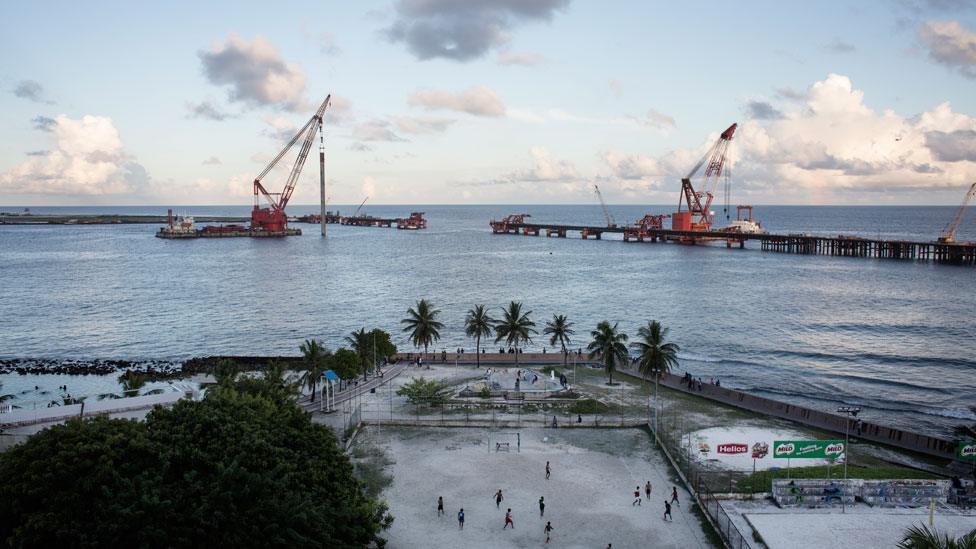
A road bridge has been built to connect the capital with the airport island of Hulhule
12th Century - Islam introduced.
1558-1573 - Portuguese occupation, which ends after expulsion by locals.
17th Century - Islands become a protectorate first of the Dutch rulers of Ceylon (Sri Lanka) and later of the British, who take control of Ceylon in 1796.
1887 - Status formalised as internally self-governing British protectorate.
1965 - Full independence as a sultanate outside Commonwealth.
1968 - Sultan deposed after referendum, Ibrahim Nasir becomes president.
1978 - Nasir retires, replaced by Maumoon Abdul Gayoom.
1980s - Development of tourist industry fuels economic growth.
2008 - Opposition leader Mohamed Nasheed defeats President Gayoom in elections.
2012 -President Mohamed Nasheed is ousted in a coup.
2018 - Opposition leader Ibrahim Mohamed Solih defeats President Abdulla Yameen in a surprise result.
2020 - The Maldives rejoins the Commonwealth.
2023 - Mohamed Muizzu defeats President Ibrahim Mohamed Solih.
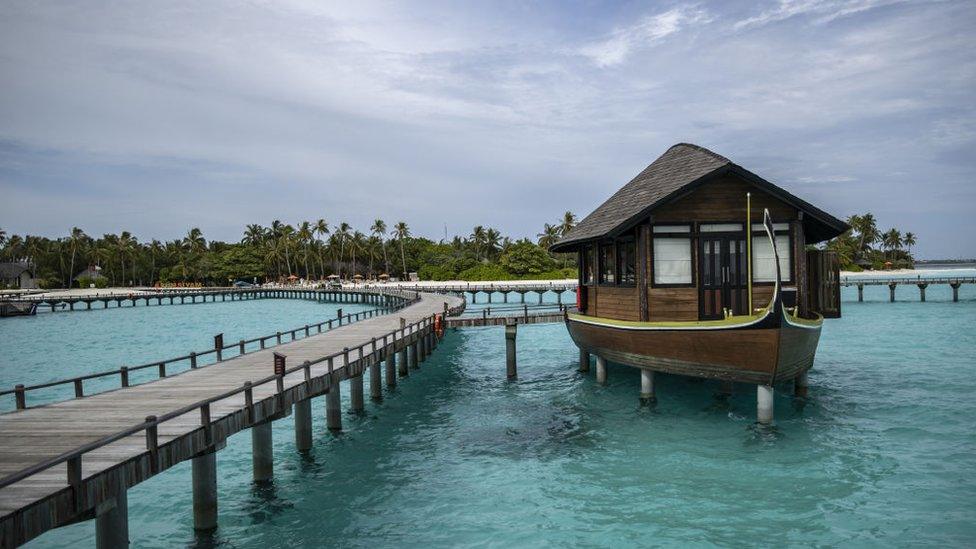
The Maldives is one of the countries most threatened by the sea level rises due to global warming
- Published10 March
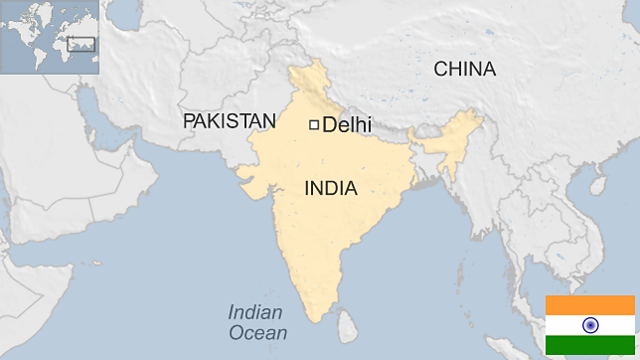
- Published4 October 2024
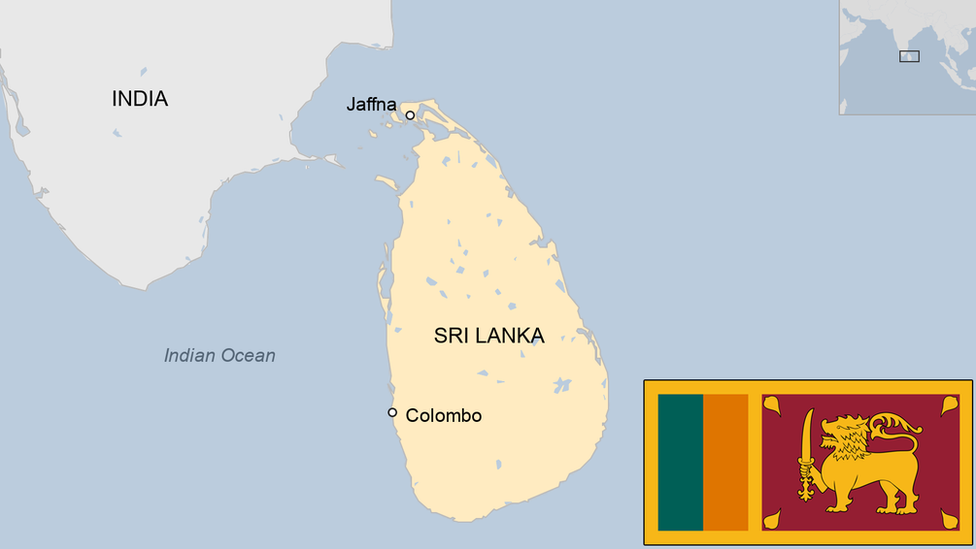
- Published9 October 2024
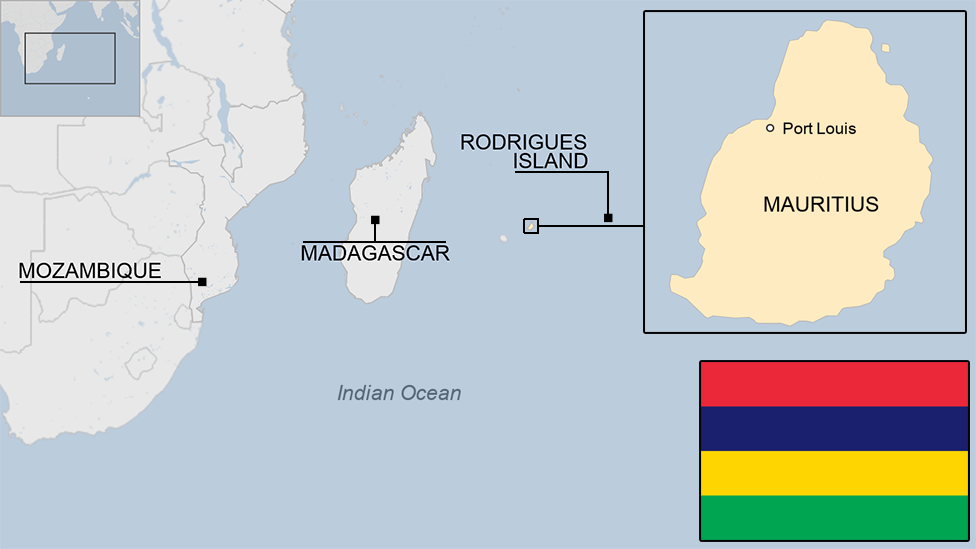
- Published21 July 2023
